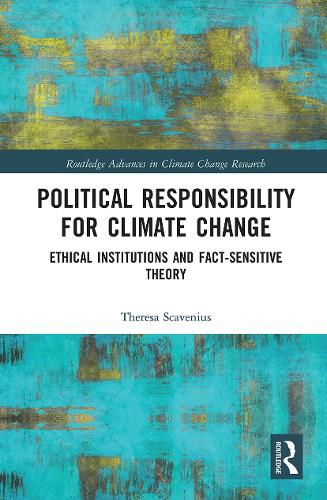Readings Newsletter
Become a Readings Member to make your shopping experience even easier.
Sign in or sign up for free!
You’re not far away from qualifying for FREE standard shipping within Australia
You’ve qualified for FREE standard shipping within Australia
The cart is loading…






This book offers new perspectives on how social and political institutions can respond more effectively to climate change.
Theresa Scavenius presents a concept of moral responsibility that does not address the obligations of individual citizens, but instead assesses the moral responsibility of institutionalised actors, such as governments, parliaments, and other governmental agencies. This focus on political responsibility is something that up until now has largely been neglected by moral theory, but Scavenius argues in this book that accountability must be assigned to institutionalised group agents. With this new research, she outlines building blocks for a new agenda of climate studies by offering an innovative approach to climate governance and democratic climate action at a time when many political initiatives have failed and crucially outlines the necessity of approaching moral dilemmas from a fact sensitive political theoretical approach.
Written in a clear and engaging style, this volume will be an invaluable reference for researchers interested in moral philosophy, climate change, environmental politics and policy, and institutional theory.
$9.00 standard shipping within Australia
FREE standard shipping within Australia for orders over $100.00
Express & International shipping calculated at checkout
This book offers new perspectives on how social and political institutions can respond more effectively to climate change.
Theresa Scavenius presents a concept of moral responsibility that does not address the obligations of individual citizens, but instead assesses the moral responsibility of institutionalised actors, such as governments, parliaments, and other governmental agencies. This focus on political responsibility is something that up until now has largely been neglected by moral theory, but Scavenius argues in this book that accountability must be assigned to institutionalised group agents. With this new research, she outlines building blocks for a new agenda of climate studies by offering an innovative approach to climate governance and democratic climate action at a time when many political initiatives have failed and crucially outlines the necessity of approaching moral dilemmas from a fact sensitive political theoretical approach.
Written in a clear and engaging style, this volume will be an invaluable reference for researchers interested in moral philosophy, climate change, environmental politics and policy, and institutional theory.